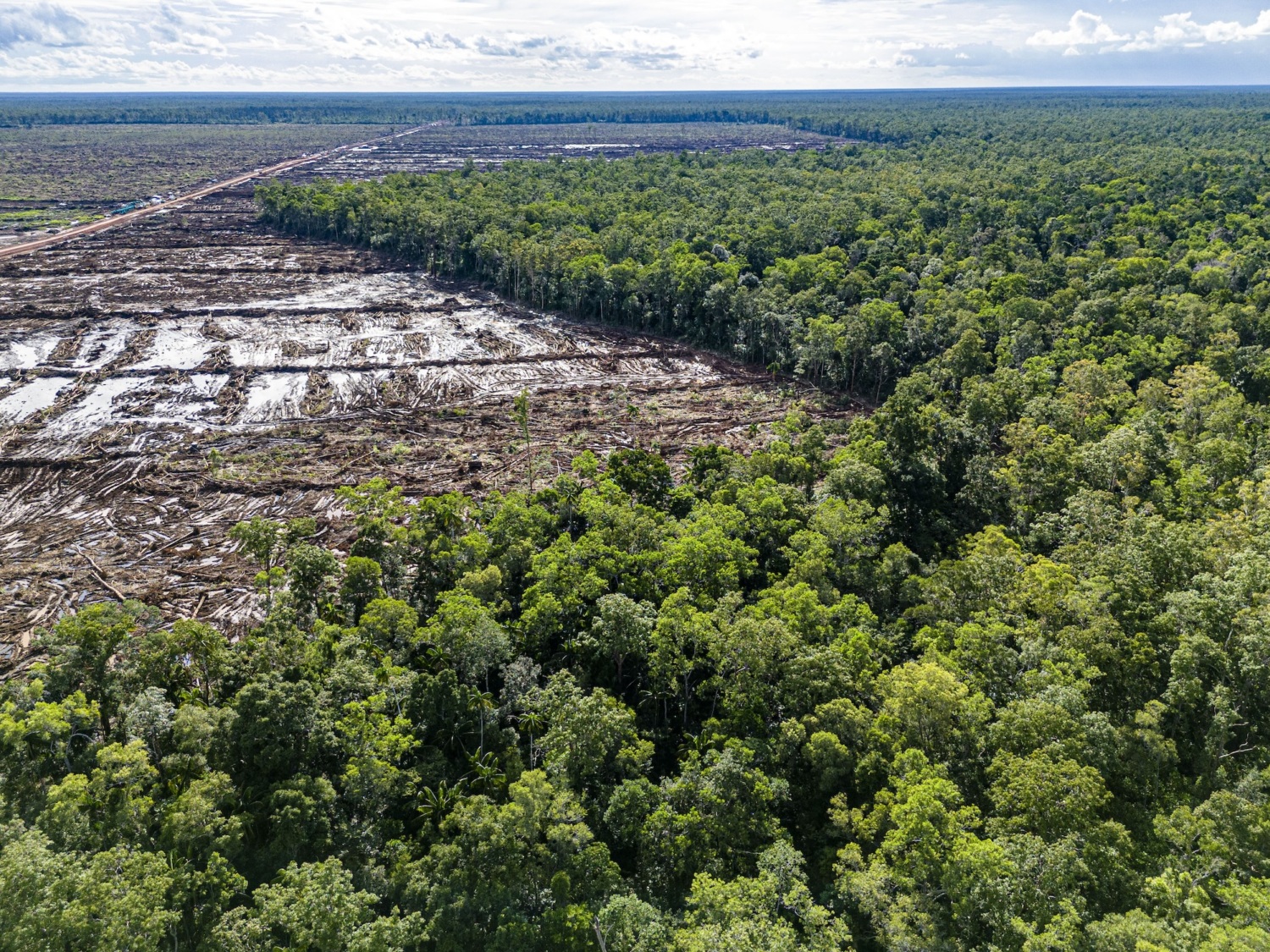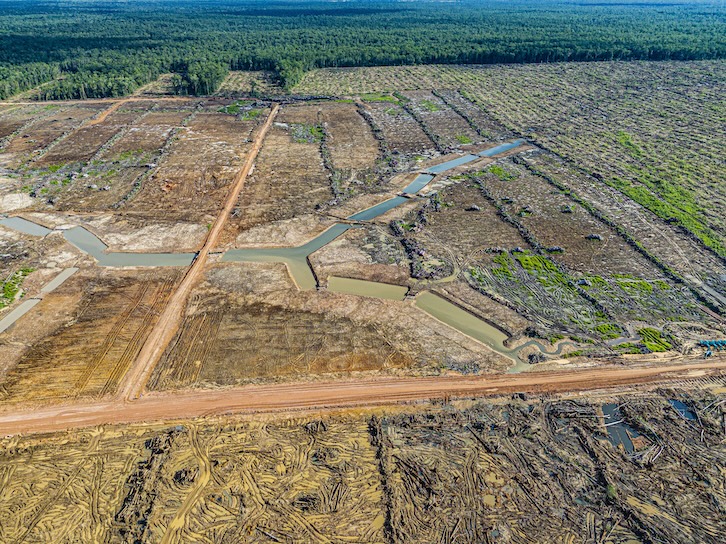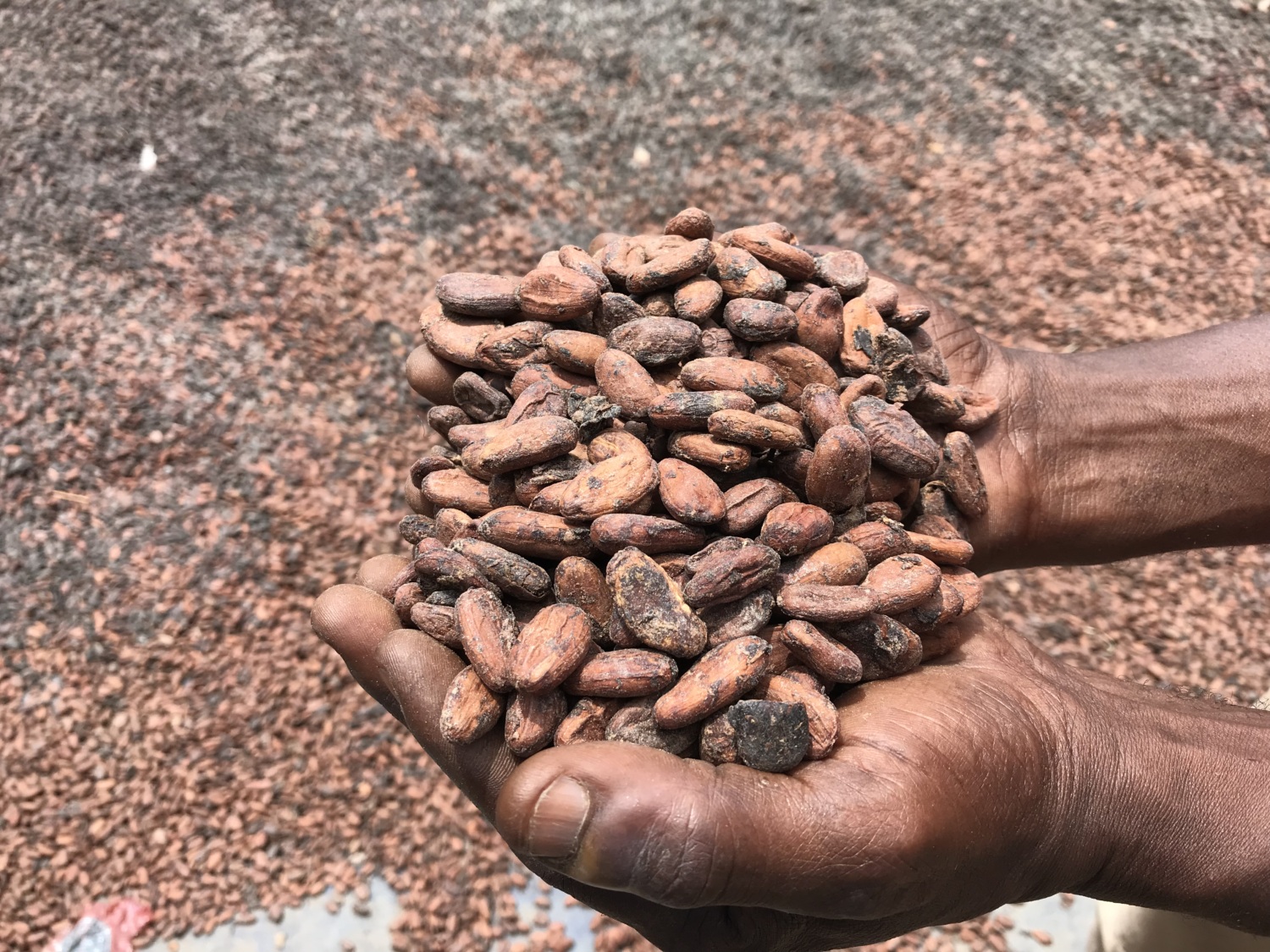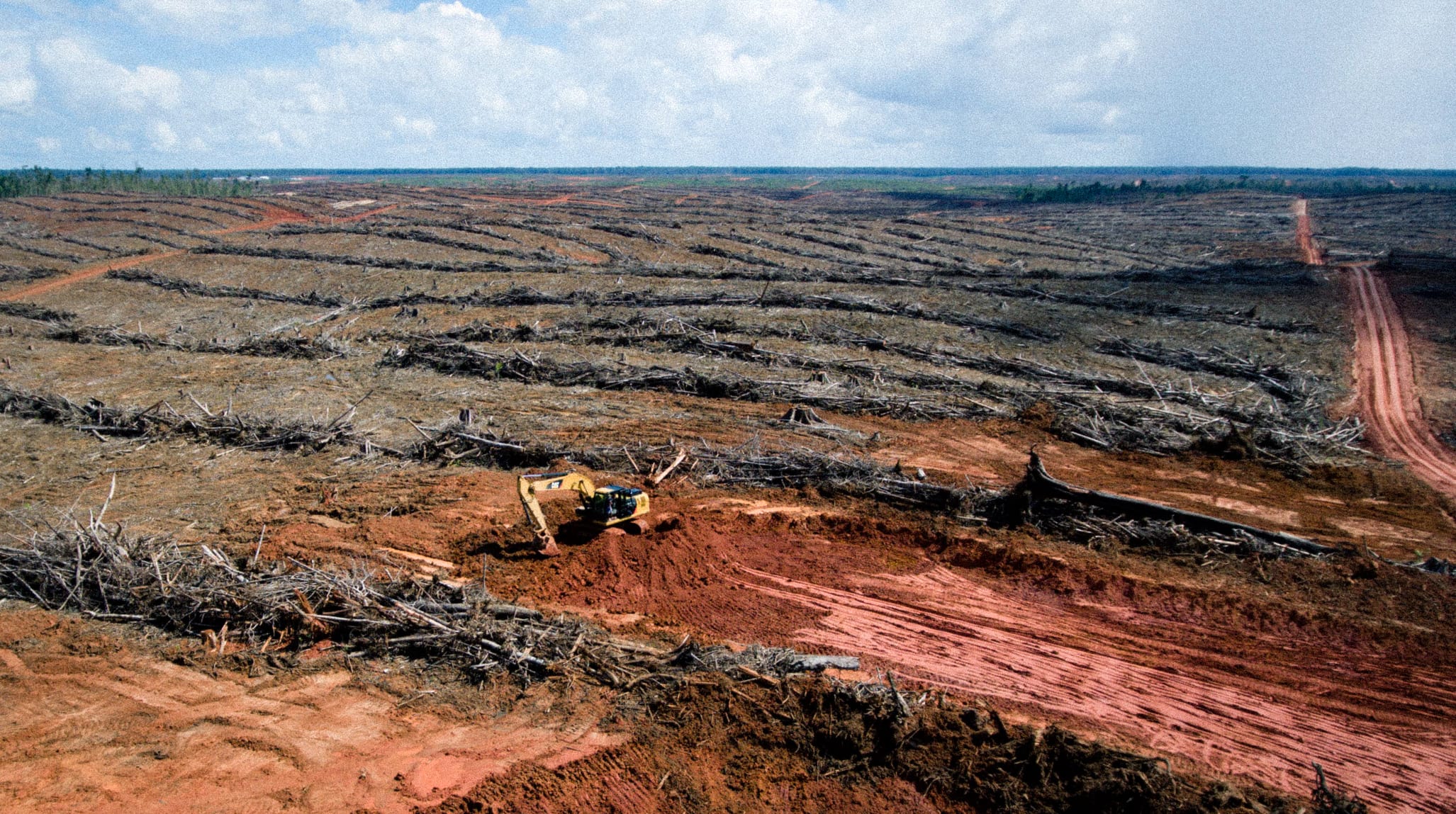
New Report Identifies Secret Market for Deforestation-Linked Palm Oil
New Report Identifies Secret Market for Deforestation-Linked Palm Oil Read the Executive Summary Read the technical report Lire en
français Investigation shows how Olam, owned by Singapore’s national wealth fund, is driving rainforest destruction from Gabon to Indonesia
PARIS (December 12, 2016) – A new report released today by Mighty and Gabon-based NGO Brainforest reveals that Olam, one of the world’s leading agribusiness traders, is operating a secretive palm oil trading operation. It finds that Olam is creating a market for deforestation-linked palm oil, and then funneling it to some of the world’s best known brands that have touted their own strong sustainability policies. Olam is majority owned by Singapore’s national wealth fund, Temasek.
Read a summary of the report here, and view the accompanying video below. The full technical report is available here.[vc_raw_html]JTNDaWZyYW1lJTIwd2lkdGglM0QlMjI1NjAlMjIlMjBoZWlnaHQlM0QlMjIzMTUlMjIlMjBzcmMlM0QlMjJodHRwcyUzQSUyRiUyRnd3dy55b3V0dWJlLmNvbSUyRmVtYmVkJTJGSENhRGxwQ1JDeTAlMjIlMjBmcmFtZWJvcmRlciUzRCUyMjAlMjIlMjBhbGxvd2Z1bGxzY3JlZW4lM0UlM0MlMkZpZnJhbWUlM0U=[/vc_raw_html]“Olam is operating a giant ‘black box’ of palm oil from unknown sources,” said Etelle Higonnet, Campaign and Legal Director at Mighty. “Unlike its more responsible competitors, Olam gives its suppliers until 2020 to comply with its sustainability requirements. That’s like waving a green flag at rogue palm oil companies telling them to get as much deforestation as possible done now–before the deadline.”
The videos featured in the report show Olam bulldozing Gabonese rainforests to establish Africa’s largest palm oil plantation. Gabon is 80% forested, and abundant in wildlife such as gorillas, chimpanzees, bonobos, and forest elephants. The analysis found that Olam cleared approximately 20,000 hectares of forest across its four concessions since 2012. Photos and videos collected on the ground reveal large areas of devastated forest and giant mature trees being cut down by bulldozers and chainsaws.
“Olam broadcasts that it is a sustainability leader to the world, but that is far from the reality in Gabon,” said Marc Ona Essangui, founder of the environmental NGO Brainforest and Goldman Award Winner. “After fighting for years, we hope this report will finally spur action by Olam to truly adopt industry best practices to protect the forest homes of our communities and precious wildlife.”
The extent of deforestation documented would put Olam in violation of its commitments to the Forest Stewardship Council. Olam, whose customers include global brands such as PepsiCo, ConAgra, Unilever, Mondelez, and Nestlé, is part of a larger trend of Southeast Asian palm oil companies expanding to Africa, where there is less scrutiny and more land, and bringing the industry’s old business model of rainforest destruction and human rights abuse along with them.
Mighty’s investigation showed that over the past four years, Olam has expanded its global palm oil business twenty-fold, rising from a marginal position to control 2.5% of all total global palm oil trade. However, this increased influence has not brought increased transparency. Olam fails to reveal the third party suppliers that provide over 99% of its palm oil. Less than 1% of Olam’s palm oil comes from its own plantations. Olam’s lack of transparency is in sharp contrast to the other major traders in the industry like Wilmar International, Musim Mas, and Golden Agri-Resources, all of which identify third party suppliers and palm oil mill locations.
Temasek, a S$242 billion ($180 billion USD) investment fund owned by the Government of Singapore, is the majority shareholder of Olam, which has become a major buyer (250,000t in 2016) of Indonesian palm oil. Unsustainable palm oil production in Indonesia caused rampant forest fires, leading to thick haze that blanketed the entire Southeast Asian region in 2015. Singapore was particularly affected by the haze. Schools were closed, flights were cancelled, and tens of thousands sought medical attention. An estimated 2,200 premature deaths occurred in the nation as a result. Ironically, through Temasek’s investments in Olam, the people of Singapore have unwittingly financed what is likely one of the world’s largest “black boxes” for the kind of unsustainably produced palm oil that led to this haze crisis.
See the FSC complaint with regard to Olam’s deforestation for palm oil.
See the memo accompanying the FSC complaint about possible Olam deforestation for rubber in Northern Gabon. (See here for the memo in French.)
About Mighty: Mighty is a global environmental campaign organization that works to protect forests, conserve oceans, and address climate change.
About Brainforest: Brainforest is a Gabonese NGO working on forest conservation, environmental protection, and promoting local and indigenous community consultation.
UPDATE: Read Olam’s response here.
UPDATE: In one day, the report has earned significant media coverage, including in the Financial Times, BBC, and Eco-Business. Listen to CEO Glenn Hurowitz’s interview on BBC here.
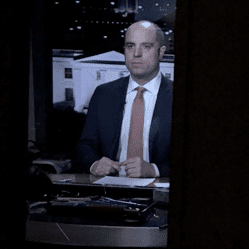
FOR MORE INFORMATION:
Marisa Bellantonio
203-479-2026
[email protected]
Featured photo of Olam palm oil plantation, Ngounié, Gabon, March 2014.
